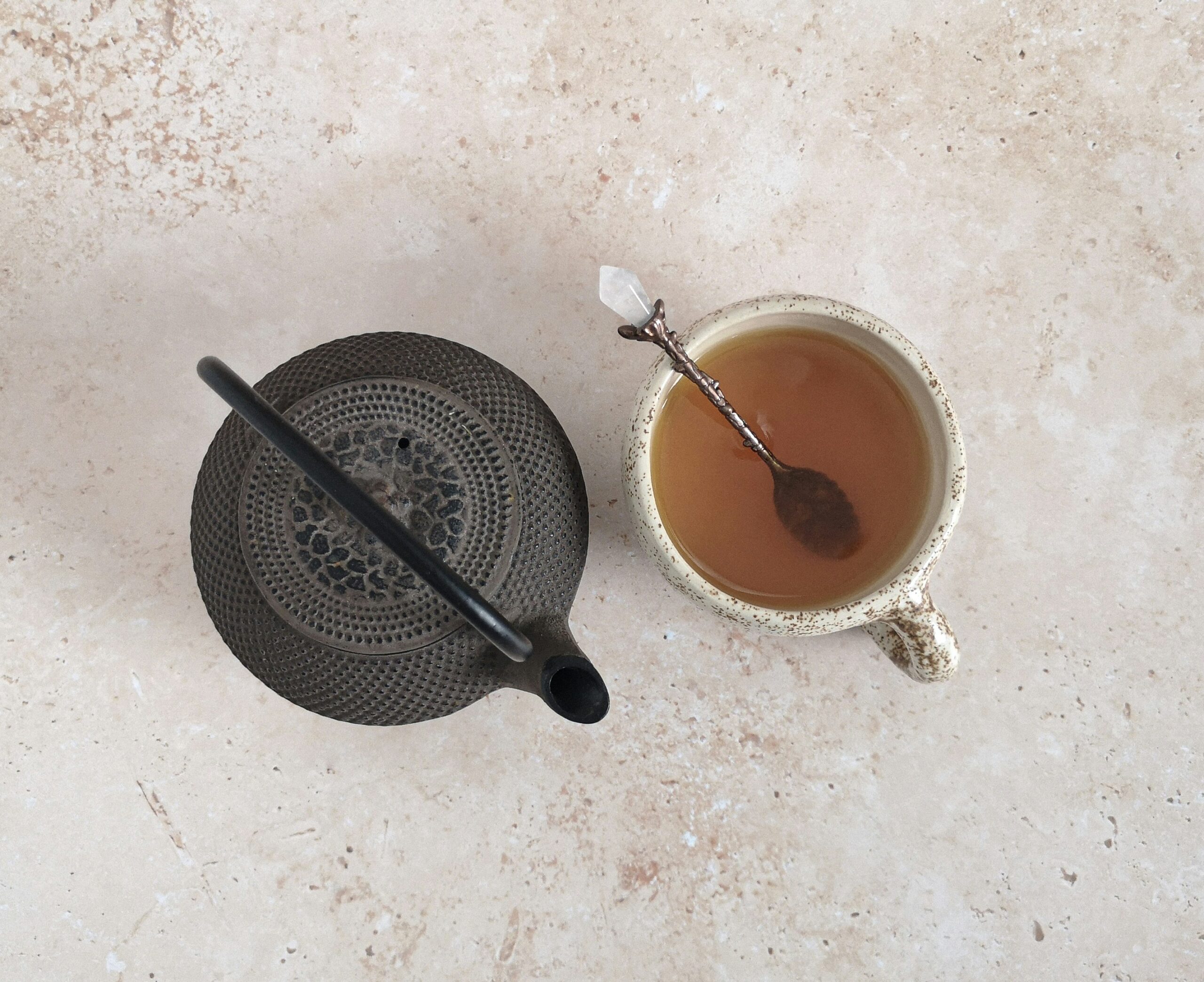
Herbs have long played a supportive role in fasting practices, offering a range of benefits from boosting energy levels to promoting better digestion. As individuals explore modified fasting regimens, incorporating herbal remedies can enhance the experience and improve outcomes. Integrating specific herbs during fasting can optimise health benefits and support the body’s transition through various fasting stages.
During the fasting period, herbs such as ginger and peppermint can soothe the digestive system, while others like turmeric possess anti-inflammatory properties, aiding in overall wellness. The strategic use of herbs not only supports the physical aspect of fasting but also offers cognitive and emotional benefits, making the process more comprehensive and rewarding.
Understanding which herbs complement specific types of fasting can tailor the experience to individual needs. Research suggests that fermented herbal medicines can effectively aid in reducing visceral fat and improving metabolic health. Herbs make fasting more accessible and beneficial, whether the goal is weight management or spiritual practice.
Key Takeaways
- Herbs optimise fasting benefits.
- Specific herbs support digestion.
- Herbal remedies offer cognitive and emotional benefits.
Understanding Fasting and Its Types
Fasting has gained popularity as a dietary strategy for health improvement, with various types offering distinct benefits. Key types include intermittent fasting, prolonged fasting, and juice fasting, each with unique implications for weight loss and metabolic flexibility.
The Concept of Fasting
Fasting involves voluntarily abstaining from some or all food and drink for a specific period. This practice extends beyond religious observance and is often used for health benefits. There are different fasting methods like water only or juice fasting.
The body enters a state of ketosis during fasting, which aids in fat burning. Understanding the physiological changes during fasting helps in optimizing its benefits, such as improving insulin sensitivity and promoting cellular repair processes.
Types of Fasting
There are several fasting types, each serving different health goals. Intermittent fasting involves cycling between eating and fasting windows. Common methods include the 16/8 method or alternate-day fasting.
Prolonged fasting, lasting more than 24 hours, is often used for deeper cellular regeneration. Juice fasting allows only fruit and vegetable juices, supporting temporary detoxification. Each type influences metabolism differently and can aid in weight loss by enhancing metabolic flexibility and promoting ketosis.
Benefits of Intermittent Fasting
Intermittent fasting has gained attention for its potential health benefits. It supports weight loss by increasing metabolic rate and reducing calorie intake. This method also enhances metabolic flexibility, allowing the body to switch efficiently between burning glucose and fat for energy.
In addition, intermittent fasting may promote insulin sensitivity, lower inflammation, and aid in muscle preservation. Many find this pattern of eating easier to maintain than other dietary restrictions, making it a sustainable lifestyle choice. By aligning with the body’s natural circadian rhythms, intermittent fasting can improve overall metabolic health.
Herbal Allies during Fasting
Incorporating herbs into a fasting routine can promote health and wellbeing by enhancing energy levels, supporting digestion, and boosting the immune system. Herbal teas can be an effective way to introduce these benefits during fasting periods.
Role of Herbs in Supporting Fasting
Herbs play a significant role in supporting the fasting process by aiding digestion and metabolism. Certain herbs can provide detoxification benefits, allowing the body to eliminate toxins more effectively. They also offer antioxidants, which help reduce oxidative stress, a common issue during fasting periods. Additionally, some herbs promote mental clarity and steady energy levels, assisting individuals to maintain focus and vitality while abstaining from food. Incorporating herbs into a fasting routine can thus support overall health and help individuals achieve their fasting goals.
Herbal Teas and Their Benefits
Herbal teas are a popular choice during fasting due to their soothing properties. They can support digestion and metabolism, which is crucial when the body is not receiving a constant supply of food. Teas such as chamomile and peppermint can ease digestive discomfort and promote relaxation. Ginger tea is known for stimulating digestion and enhancing energy while balancing glucose levels. These teas also serve as a source of hydration, which is essential during fasting. Their benefits make herbal teas an excellent component of a fasting regime, promoting both physical and mental well-being.
Best Herbs for Fasting Support
Several herbs are particularly beneficial during fasting. Ginger is praised for its ability to aid digestion and boost metabolism. Turmeric is another valuable herb due to its antioxidant and anti-inflammatory properties, which can support the immune system and promote detoxification. Peppermint offers digestion relief and can enhance mental clarity. Dandelion is known for its detoxifying properties, helping the liver process and eliminate toxins. Including these herbs in a fasting regimen can provide both health benefits and support the fasting experience.
Nutritional and Energetic Considerations
Understanding the role of herbs in fasting involves assessing their impact on energy levels, caloric intake, and essential nutrient absorption. This includes how herbs influence the body’s metabolism and potential nutrient deficiencies like magnesium or iron.
Caloric Intake and Energy Conservation
During fasting, managing caloric intake and energy conservation is crucial. Herbal teas and supplements can offer support without adding significant calories. These herbs help maintain satiety and may prevent fatigue by regulating energy expenditure. Furthermore, certain herbs can enhance metabolic efficiency, allowing for sustained energy levels throughout fasting periods. While fasting, individuals should be mindful of their overall calorie needs and seek herbal blends that bolster energy without overstimulation. This careful balance aids in maintaining both mental clarity and physical vitality.
Metabolic Impact of Herbs
Herbs influence metabolism in various ways, enhancing or modulating the body’s energy processes. Adaptogens, for example, can help balance metabolic functions, reducing stress-induced metabolic changes. Herbs like ginseng and ashwagandha support stamina and energy management by regulating cortisol levels. These actions can prevent the slowing of metabolic rates often seen during restrictive caloric intake. Additionally, some herbs may boost thermogenesis, helping to burn calories efficiently, though the impact varies widely among individuals.
Nutrient Absorption and Deficiencies
Fasting may increase the risk of nutrient deficiencies. Herbs can aid in nutrient absorption by optimising digestive health. Herbal blends containing magnesium, iron, or amino acids play a critical role in maintaining electrolyte balance and preventing deficiencies. Magnesium-rich herbs, for instance, support muscle function and energy production. Iron-containing herbs ensure adequate oxygen transport and energy release. Monitoring these nutrients can help prevent deficiencies that might otherwise lead to fatigue or health complications during prolonged fasting.
Strategic Use of Supplements and Spices
The strategic inclusion of supplements and spices can greatly enhance the effectiveness of fasting. They contribute not only to nutritional support but also to the flavour of meals, making fasting more enjoyable. This section explores herbal supplements and the role spices like cinnamon, ginger, and turmeric play in fasting practices.
Incorporating Herbal Supplements
When fasting, herbal supplements can provide essential nutrients that might be lacking due to dietary restrictions. For instance, MCT oil is popular for providing sustainable energy. It assists in maintaining metabolic health and energy levels. Fasting supplements such as those containing basil can support digestion and provide antioxidants.
Individuals may use specific supplements to target personal health goals. It’s important to choose supplements that complement fasting practices without disrupting metabolic benefits. Combining these with a well-planned diet ensures that nutrient intake is balanced and health outcomes optimised.
The Role of Spices
Spices have a long tradition as both flavours and medicinal agents in various culinary practices. Using spices like cinnamon can help regulate blood sugar levels, which is particularly beneficial during fasting. Cinnamon enhances flavour and adds a sweet note without calories.
Ginger and turmeric are known for their anti-inflammatory properties. Turmeric, with its active compound curcumin, can aid in reducing inflammation, whereas ginger is recognised for its digestive aid. Adding turmeric to meals can also improve glucose metabolism. These spices not only improve the taste of meals but also deliver significant health benefits during fasting.
Cognitive and Physical Health Benefits
Herbs can play a supportive role in enhancing cognitive function and boosting physical health. These benefits can be particularly valuable during fasting periods. Incorporating certain herbs may aid in improving mental clarity, bolstering the immune system, and managing chronic disease symptoms.
Enhancing Mental Clarity and Focus
Herbs such as rosemary and ginseng are often associated with enhanced mental clarity. They may help combat brain fog by supporting neurotransmitter function and increasing blood flow to the brain. Rosemary has been used to improve memory performance, while ginseng may assist in reducing mental fatigue. This can be particularly beneficial during fasting, as it helps maintain focus and cognitive sharpness. The relationship between fasting and cognitive function can be further supported by these herbs, known to improve working memory and overall mental agility.
Strengthening the Immune System
Certain herbs like echinacea and elderberry are renowned for their immune-boosting properties, which can be advantageous during fasting periods. Echinacea, for instance, may enhance the body’s natural defense mechanisms, while elderberry is known for its antioxidant-rich profile that supports immune health. Combined with fasting’s natural stimulation of the immune system through mechanisms like autophagy, these herbs can further strengthen the body’s ability to fend off infections and maintain wellness.
Considerations for Chronic Disease
For individuals with chronic diseases such as diabetes, incorporating specific herbs during fasting requires careful consideration. Herbs like cinnamon can support better insulin regulation, potentially aiding in blood glucose management. Studies have shown that cinnamon consumption may aid those with prediabetes by enhancing memory and cognitive function. Additionally, using herbs that promote autophagy, like turmeric, can help manage inflammation and support cell repair. These benefits highlight the importance of selecting appropriate herbs to complement fasting while managing chronic conditions safely. The interaction between fasting and the AMPK pathway, which regulates energy balance, is also a crucial factor in addressing chronic disease with herbal support.
RELATED: Herbs for Internal Bleeding: Natural Remedies and Precautions
RELATED: Does Chamomile Tea Break A Fast? Its Effects On Fasting



Comments +